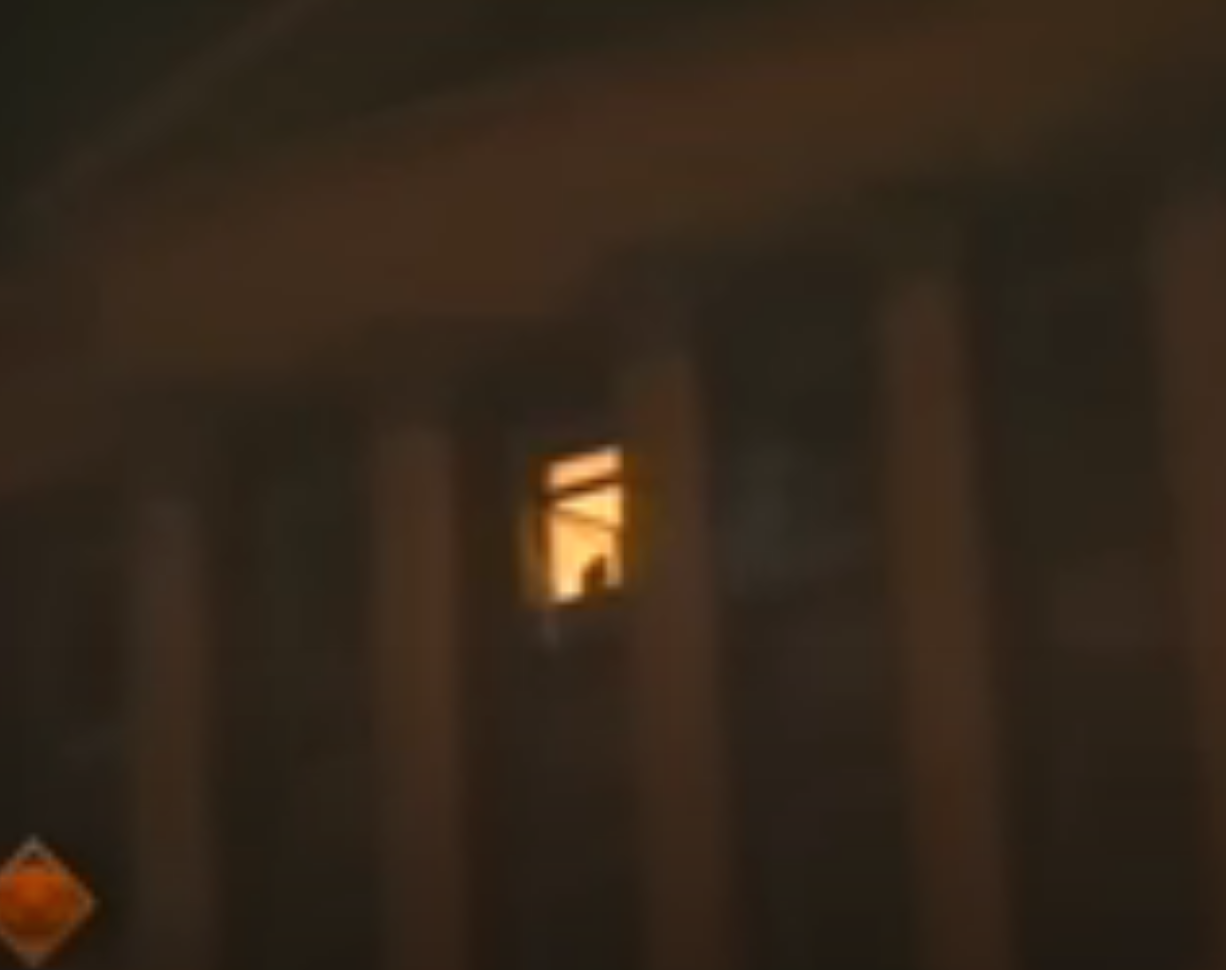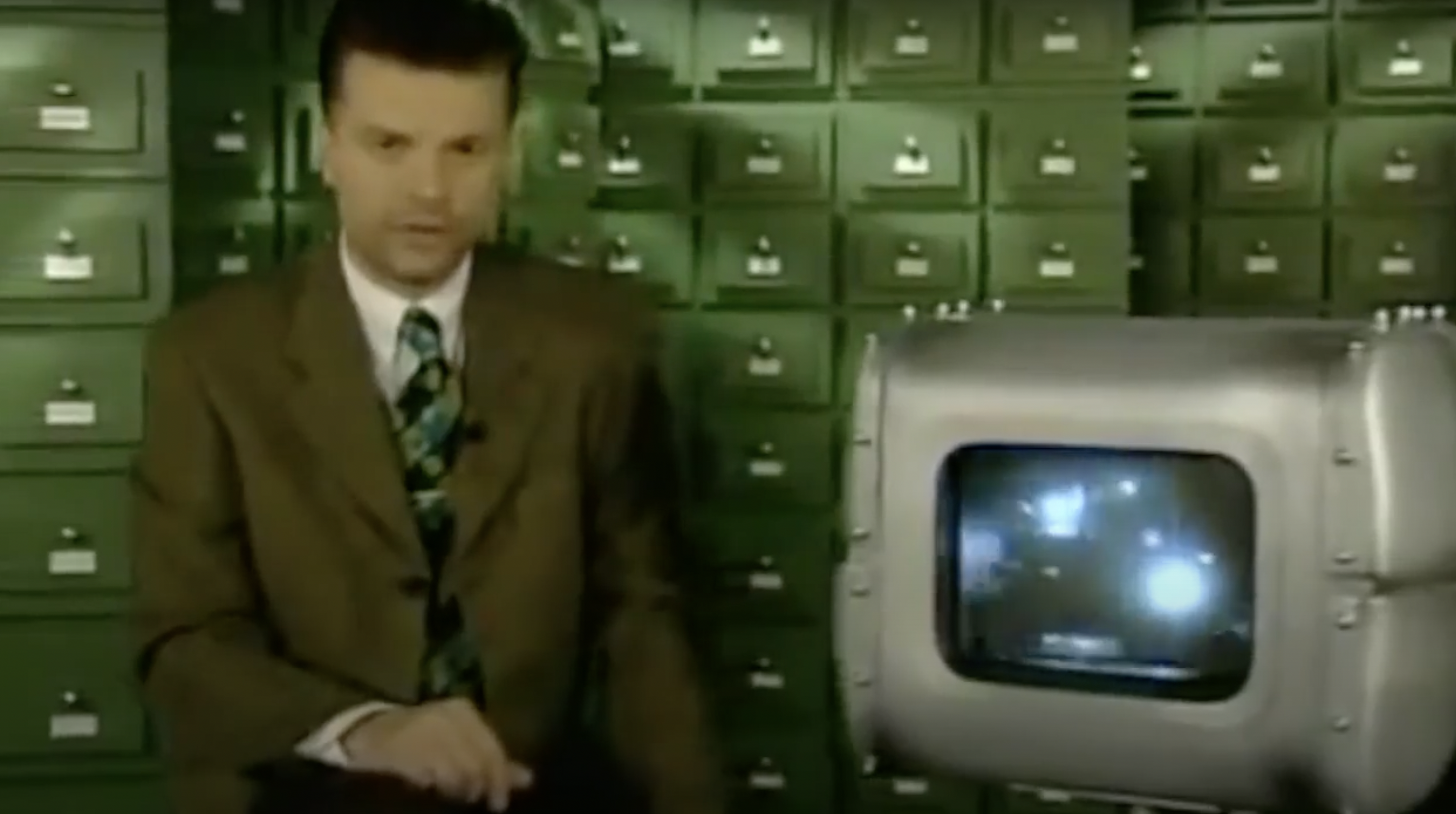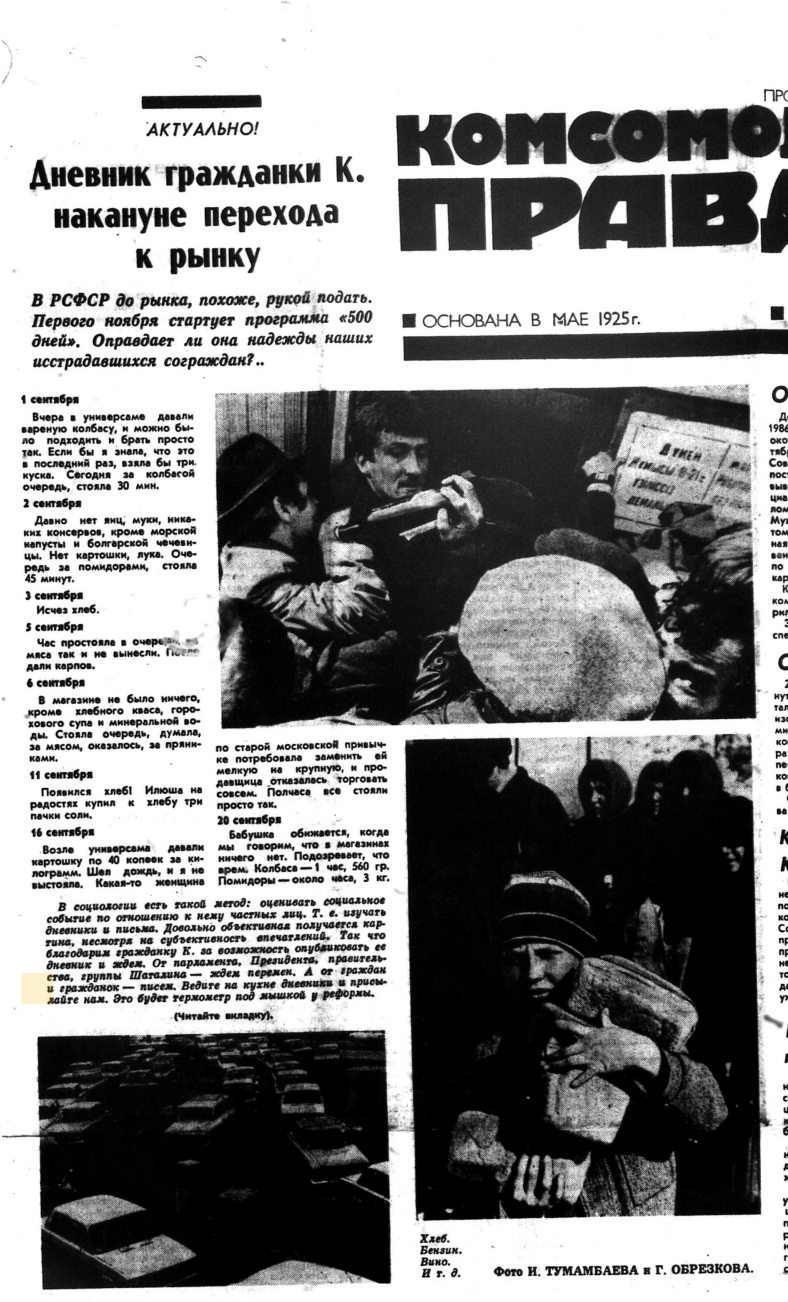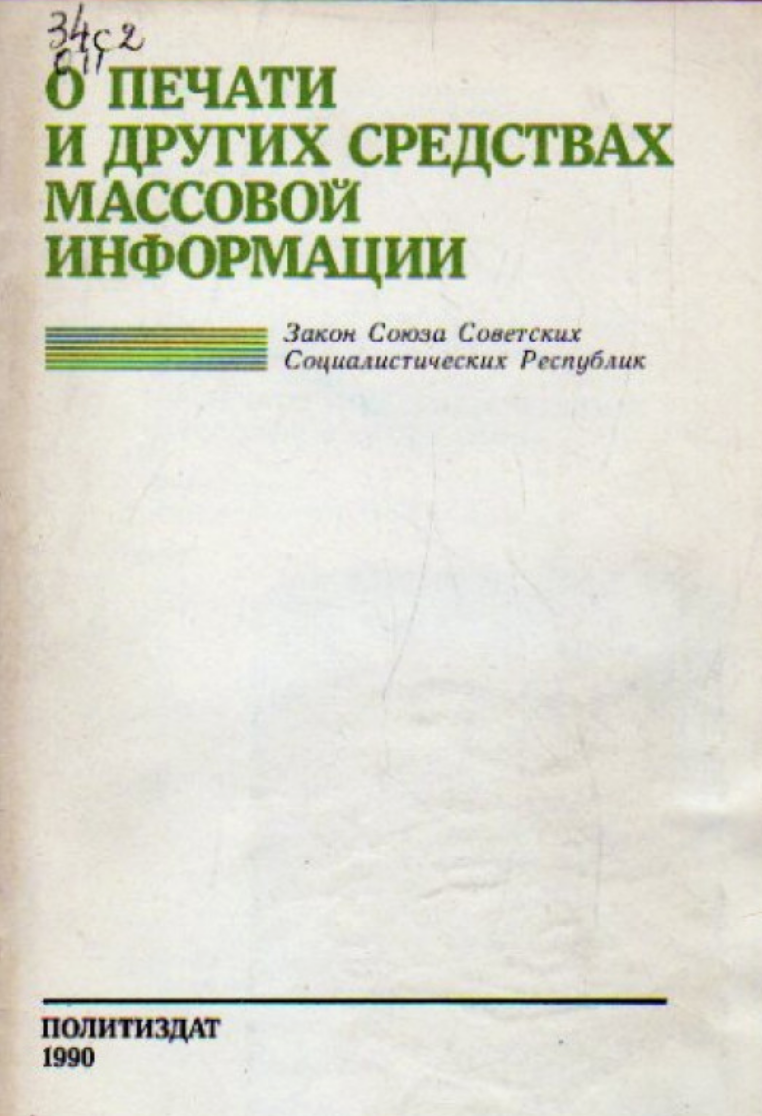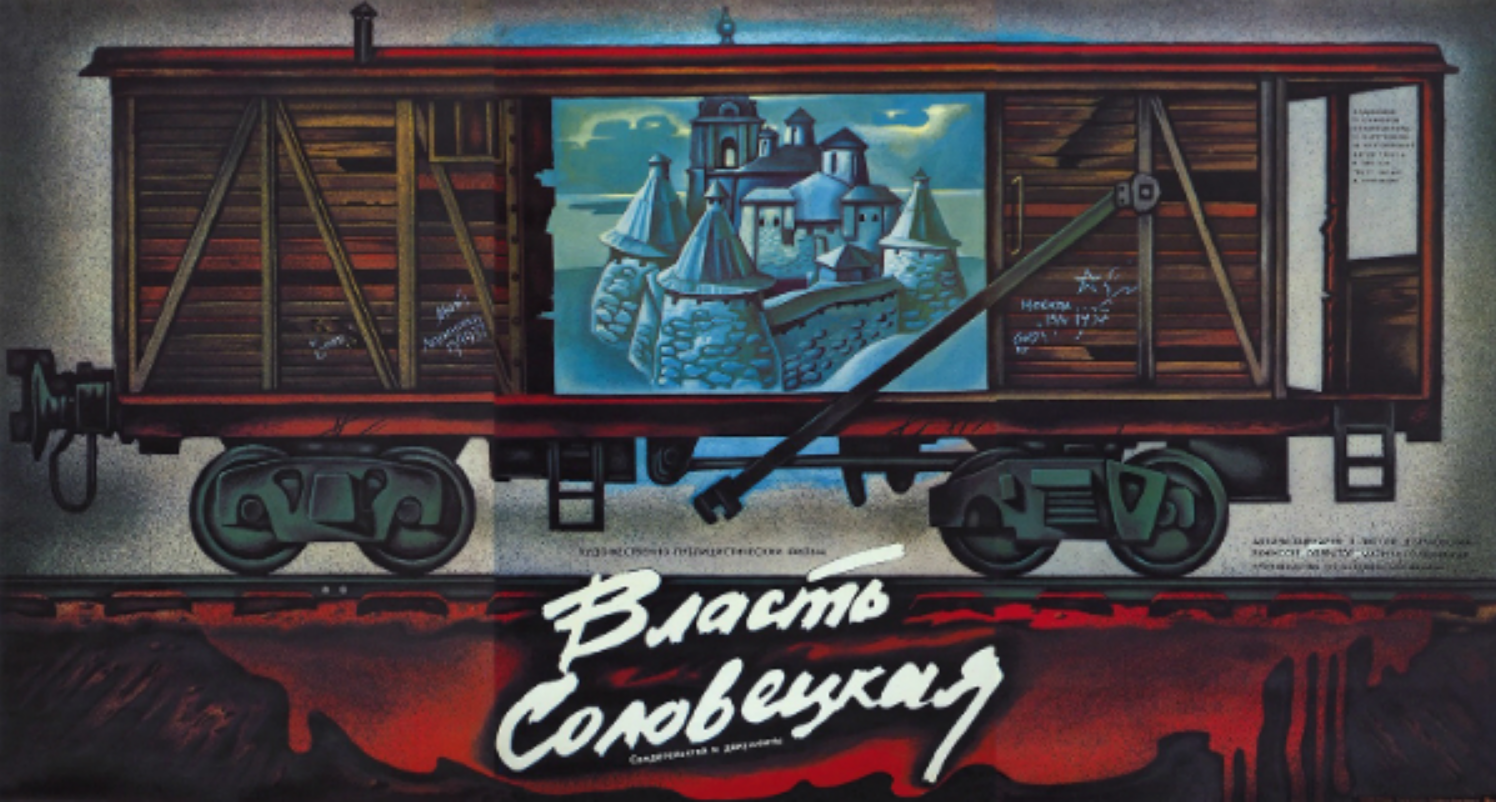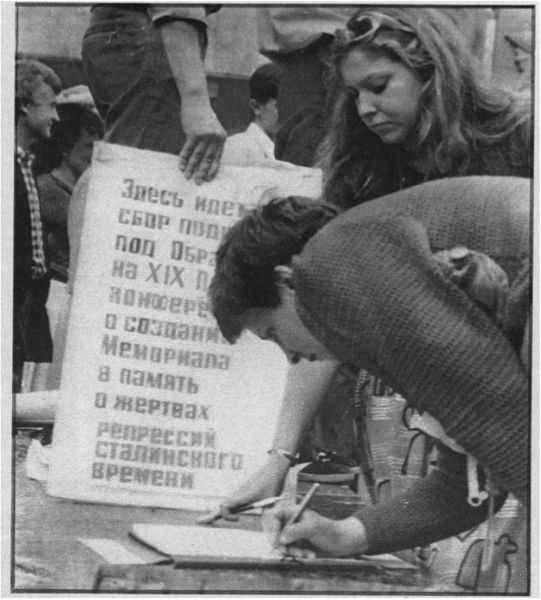Search Results
Search Terms
Results: Displaying Artifact 7 - 12 of 22 in total
Text Containing:
Page: 2
People: Mikhail Gorbachev
“Vzgliad” on the GKChP
Clips of “Vzgliad”'s reports during the attempted anti-Gorbachev coup of August 1991. These include the hosts’ holing up in the seat of Russia’s new parliament, the White House alongside its defenders and celebrities, including the cellist Mstislav Rostropovich (1927-2007).
Parfenov’s “Namedni” as memory work in the 1990s
“Namedni” (Recently), Leonid Parfenov’s project dedicated to recent history, was one of the most successful shows of the 1990s. Eschewing big narrative arcs, the program highlighted the past as a collection of memory sites—in this case, exploring the origins of the “New Russian” in 1991.
Citizen K.'s "Kitchen Diary" in "Komsomolskaya Pravda"
This editorial call, published on 29 September 1990 in the daily “Komsomolskaya pravda” (1925-), asked readers to keep and submit "kitchen diaries" on shortages and price changes in their area as a way to track the progress (and deficiencies) of perestroika-era economic reforms.
Press Law of 1990
In 1990, Mikhail Gorbachev (1931-2022) signed into law a press reform that reinforced existing commitments to speech and press freedoms, as articulated in the version of the Soviet Constitution adopted in 1977 under Leonid Brezhnev (1906-1982).
Marina Goldovskaya’s "Solovki Power" excavates painful historical memory
In 1988, journalist Marina Goldovskaya was able to release her documentary film "Solovki Power," which was dedicated to reconstructing long-suppressed memory of one of the USSR’s most notorious gulags: “Solovki.”
View Artifact
The founding of the Memorial Society in the late 1980s
Three moments in the early history of Memorial, a human rights group established in Gorbachev-era Russia (and abolished by Putin’s government in 2022) to document and memorialize Soviet political repressions and abuses.
View Artifact
